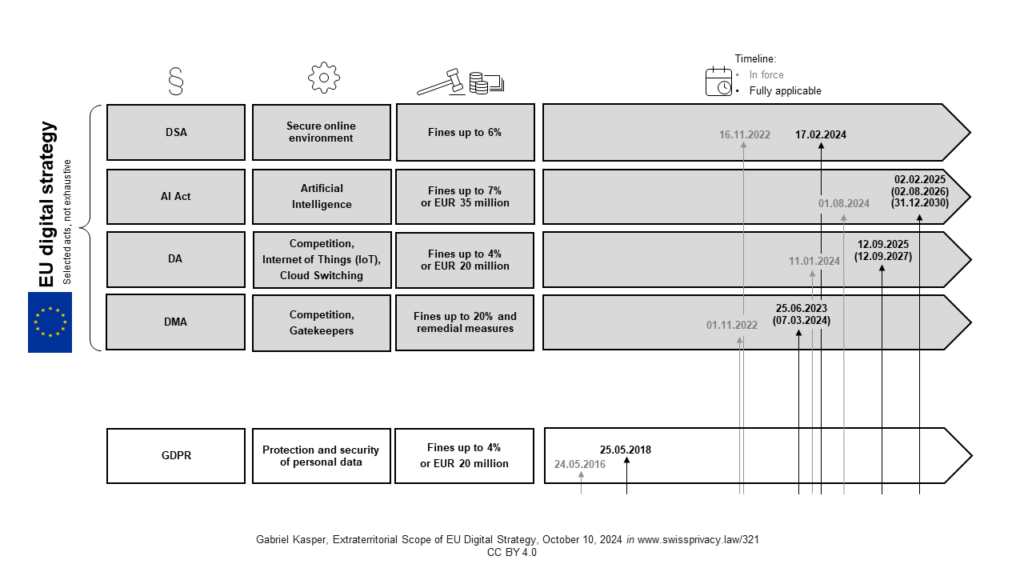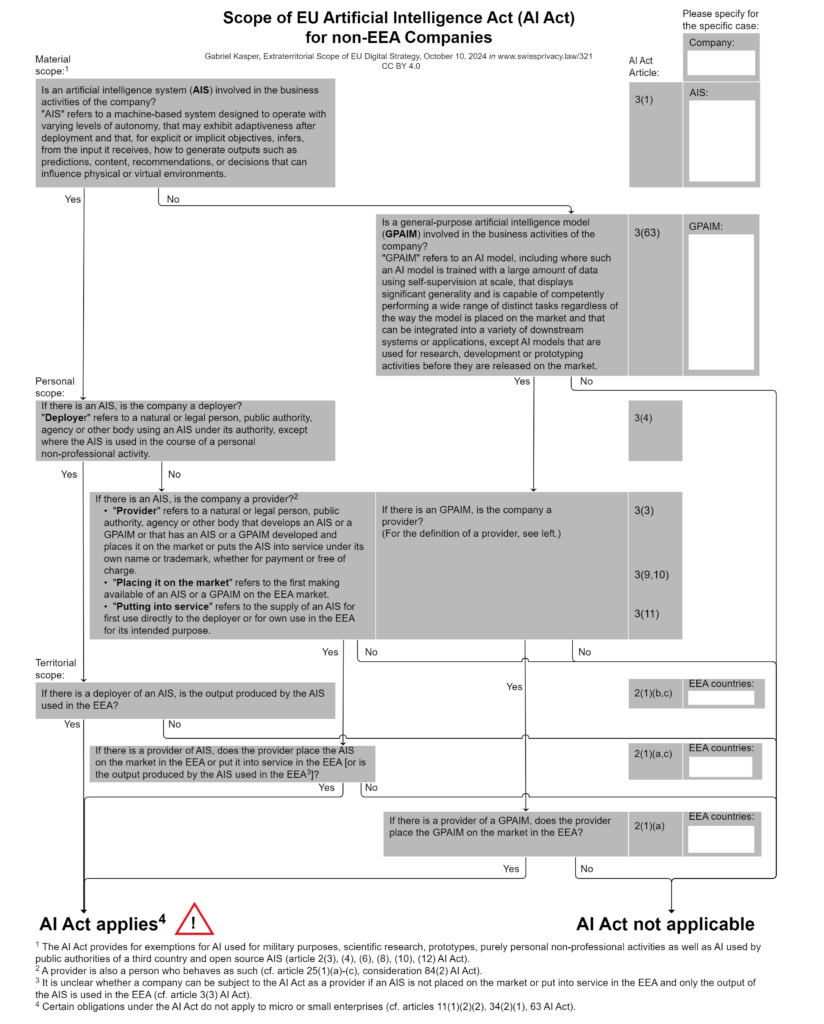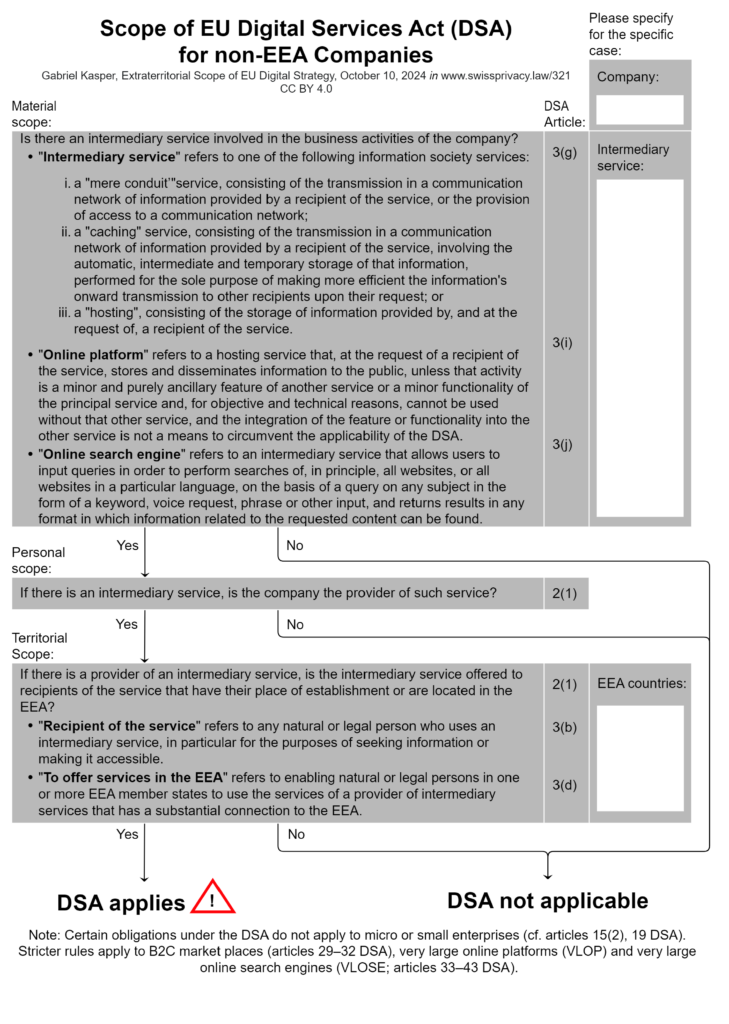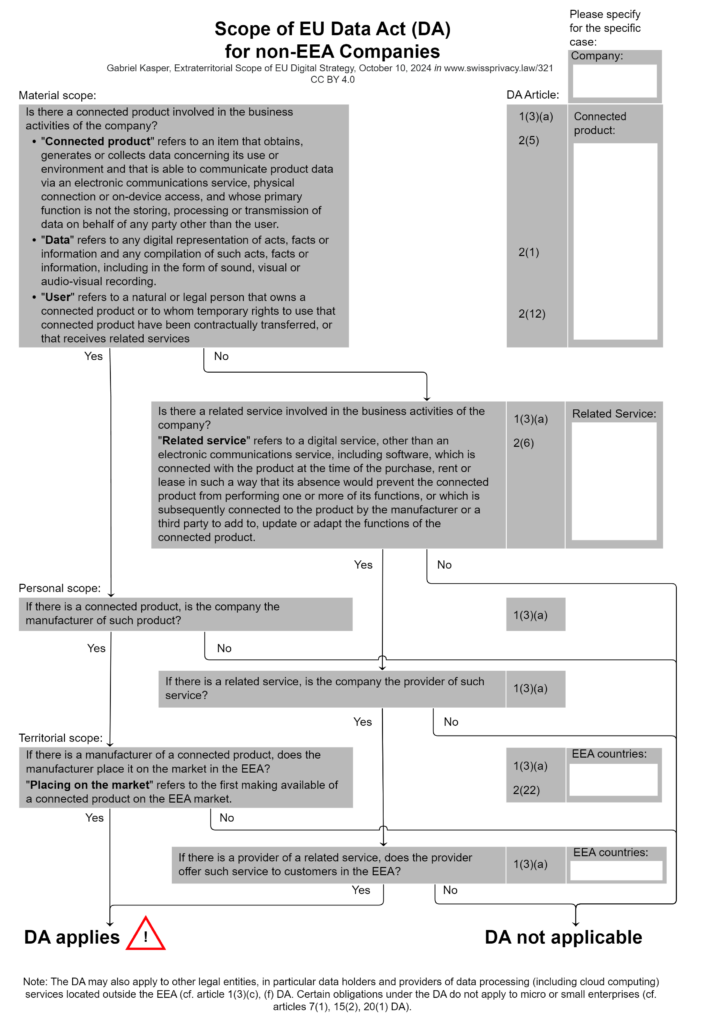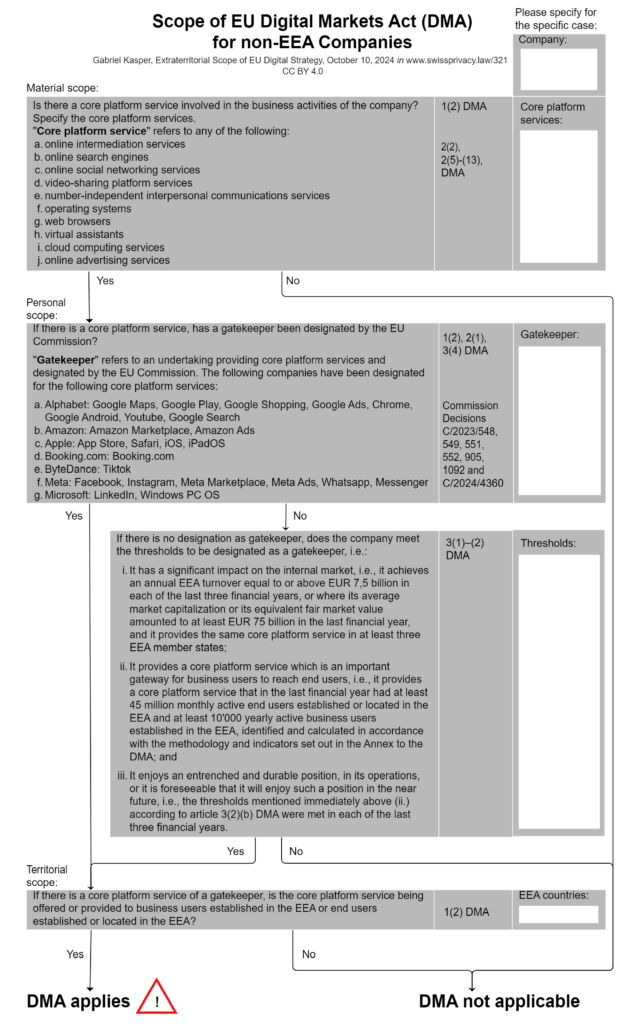Extraterritorial Scope of EU Digital Strategy

The European Union (EU) has declared the « digital decade » and has established itself as a regulatory powerhouse, leading the way in digital governance. The EU digital strategy aims to harmonize the digital single market, involving over 30 legislative measures, action plans, and initiatives. Many of these are also adopted in the European Economic Area (EEA). Key regulations include :
- Artificial Intelligence Act (AI Act): Governing the use of AI to ensure it is human-centred and trustworthy ;
- Digital Services Act (DSA): Designed to enhance safety and transparency in online environments, such as online platforms and online search engines ;
- Data Act (DA): Regulates the use of data in the context of the internet of things (IoT) and facilitates cloud migration ; and
- Digital Markets Act (DMA): Targeting « gatekeepers » to ensure competitive digital markets.
Impact of the EU Digital Strategy on Swiss Companies
What does this regulatory push mean for non-EEA countries like Switzerland ? Swiss companies must understand the EU digital strategy and the common features of these regulations :
- Extraterritorial Scope : The regulations apply to companies outside the EEA (extraterritorially) if their business affects the EEA market (market place principle). In addition, some globally operating companies unilaterally adopt the EU rules worldwide, making them de facto global standards without other countries formally adopting them (so-called « Brussels Effect »). Switzerland has not enacted similar laws, but Swiss companies may be affected by these EU acts.
- Horizontal Regulatory Approach : The AI Act, DSA, DA, and DMA cut across all industry sectors. In principle they also apply regardless of the company size, although small and microenterprises benefit from some exemptions.
- Heavy Penalties : The EU digital regulations impose significant penalties for non-compliance, exceeding the range of penalties known from the GDPR. The fines can reach up to 6% (DSA) 7% (AI Act) or even 20% (DMA) of global annual turnover, increasing the legal risks faced by companies.
- Entry Into Force During Digital Decade : The rollout of these regulations will take place gradually until 2030. For example, the AI Act’s provisions requiring companies to ensure their staff have sufficient AI literacy and prohibiting certain AI practices will enter into force on February 2, 2025. The remaining chapters will become applicable in stages until December 31, 2030. It is important for companies to be aware of which new rules are coming into force at any given time.
- Direct Applicability : The regulations of the EU digital strategy are entitled « Acts », such as the « AI Act », and have the legal nature of a generally and directly applicable regulation. Unlike directives, there is no requirement to transpose them into national law before they become applicable.
Fig. 1 : Topics, sanctions and timeline of the EU digital strategy
In sum, the EU digital strategy represents a profound shift in how the digital economy is regulated. Its direct, extraterritorial scope and horizontal approach mean that potentially all Swiss companies could be affected. Therefore, all should check if they fall within the scope of these EU regulations.
| Tool for Practitioners : Flowcharts on the Extraterritorial Scope of the EU Digital Strategy Compliance will become more complex. To assist, this blog post includes four interactive flowcharts to help determine if a company falls under the AI Act, DSA, DA, or DMA. |
Fig. 2 Scope of AI Act for non-EEA Companies
Fig. 3 Scope of DSA for non-EEA Companies
Fig. 4 Scope of DA for non-EEA Companies
Fig. 5 Scope of DMA for non-EEA Companies
The flowcharts are English translations of those published originally by the same author in German in : Kasper Gabriel, Extraterritorialer Geltungsbereich der EU-Digitalstrategie, Jusletter, September 23, 2024. For a detailed explanation, refer to the mentioned original article. A free copy and an English machine translation of the original article can be obtained from the author.
Proposition de citation : Gabriel Kasper, Extraterritorial Scope of EU Digital Strategy, 10 octobre 2024 in www.swissprivacy.law/321

 Les articles de swissprivacy.law sont publiés sous licence creative commons CC BY 4.0.
Les articles de swissprivacy.law sont publiés sous licence creative commons CC BY 4.0.

